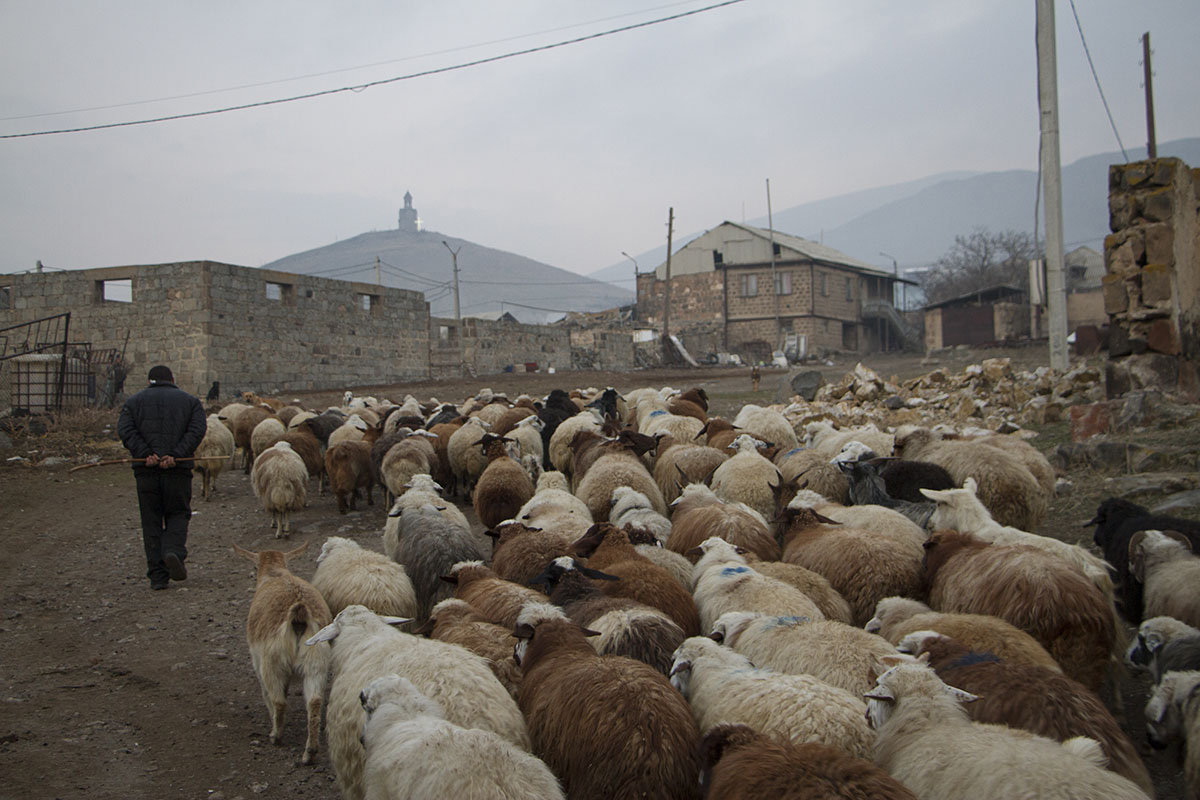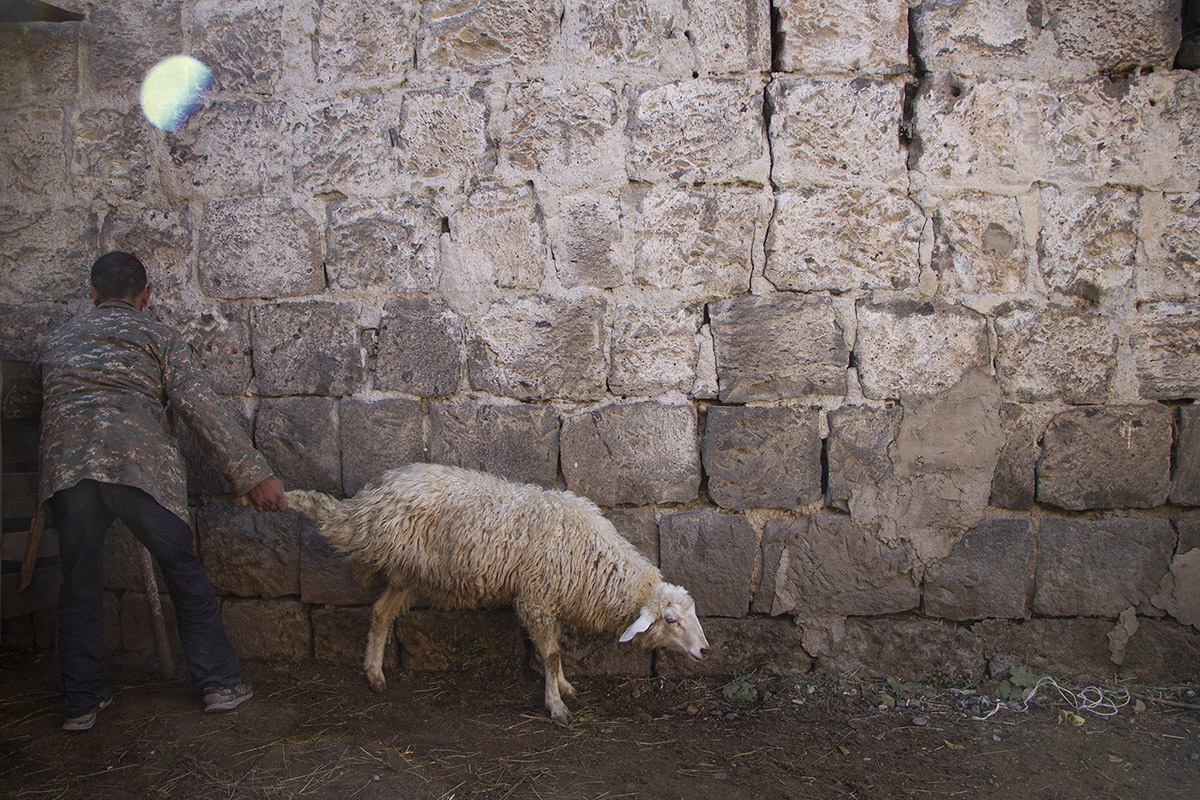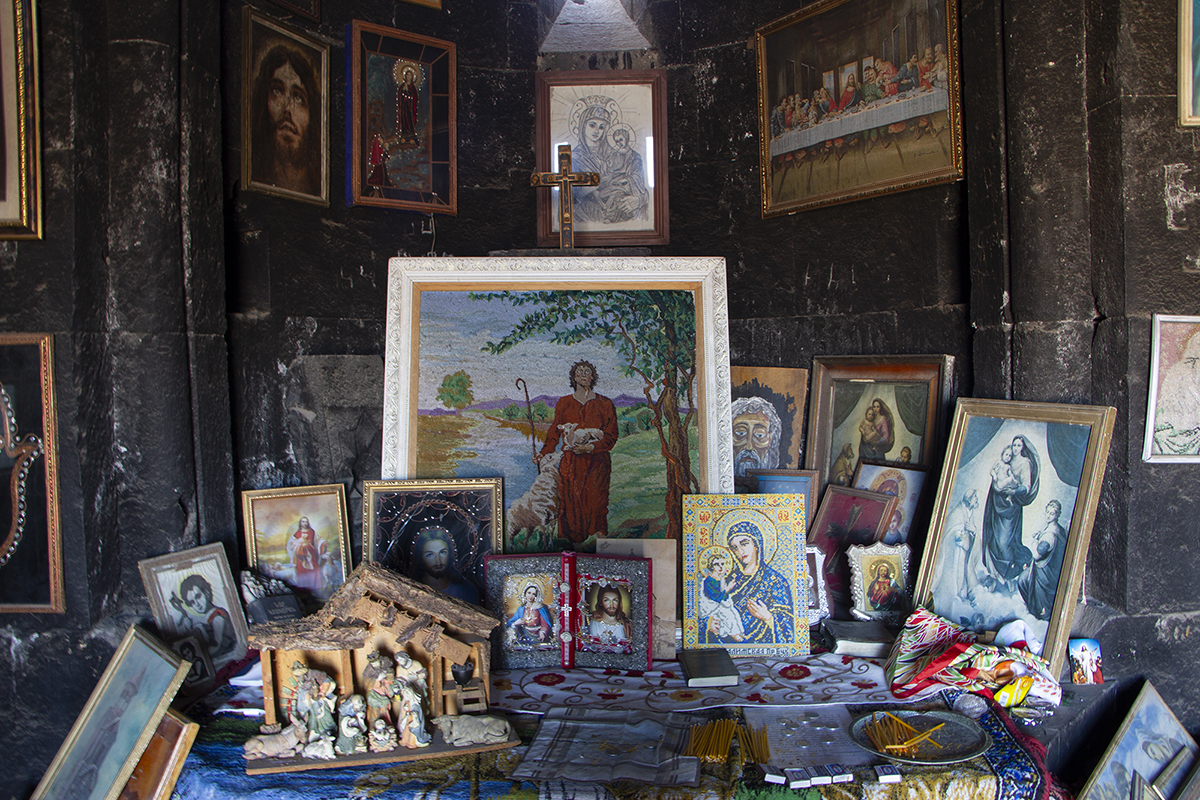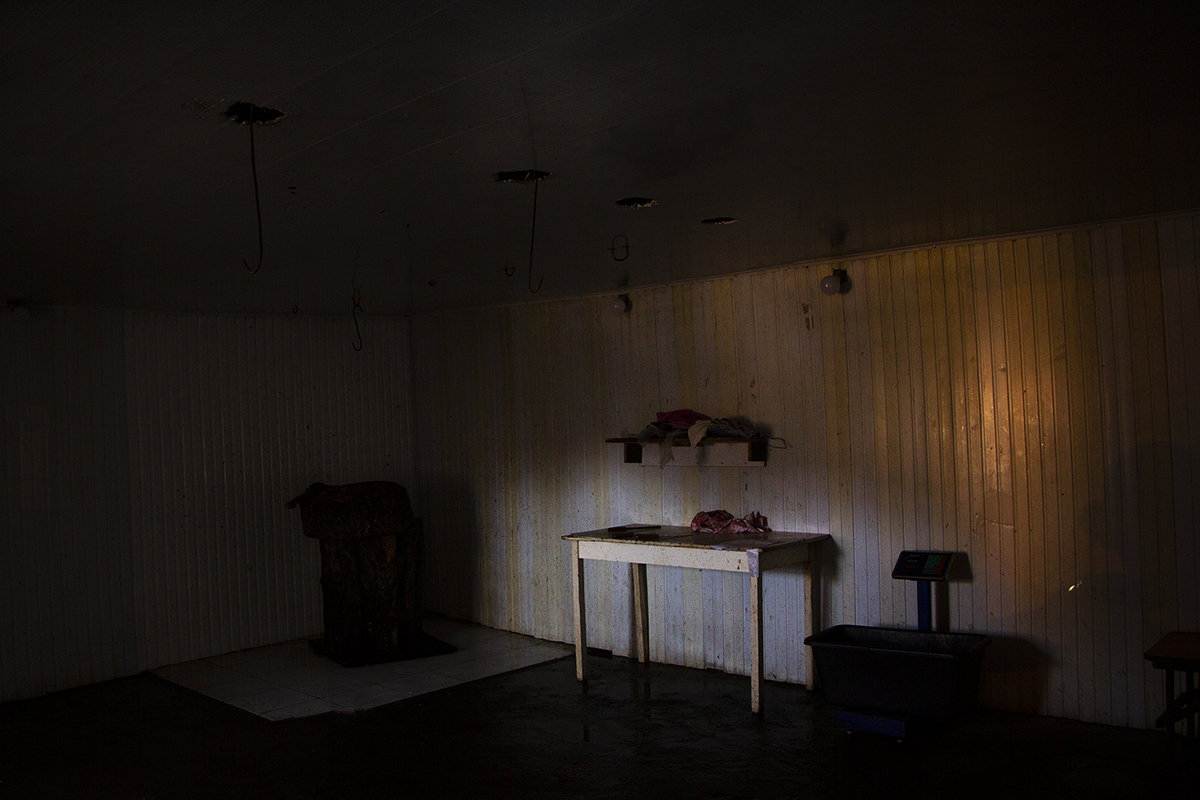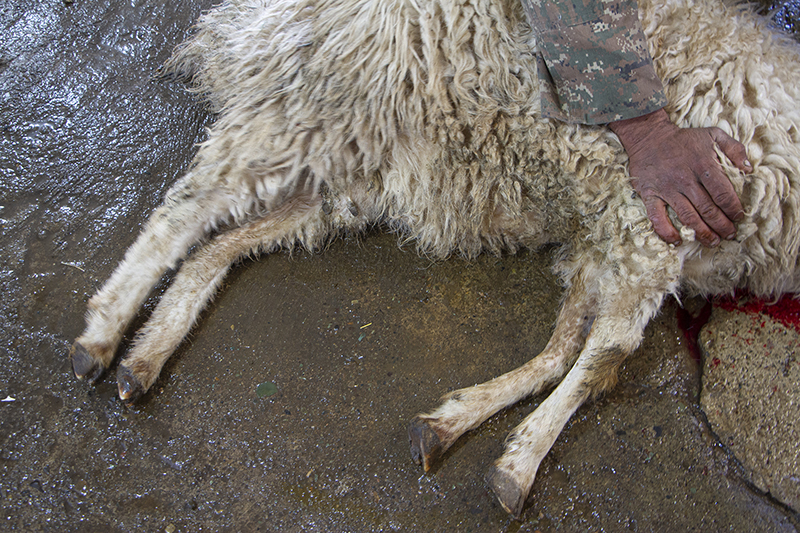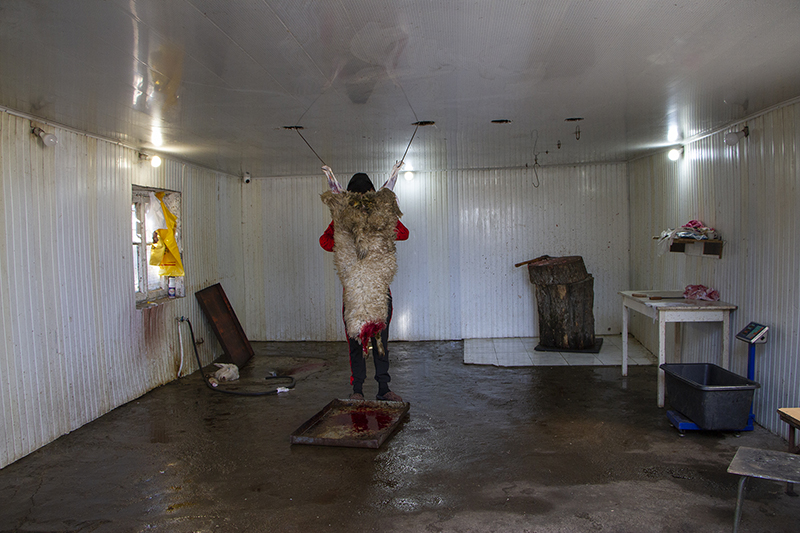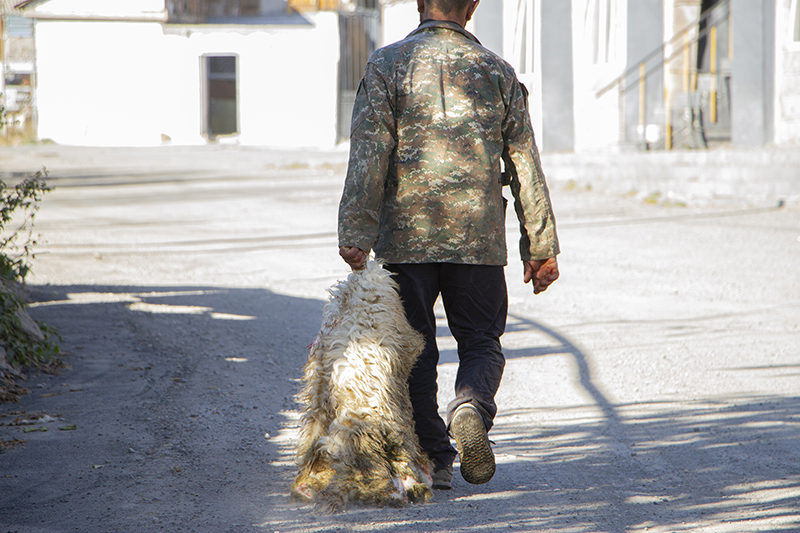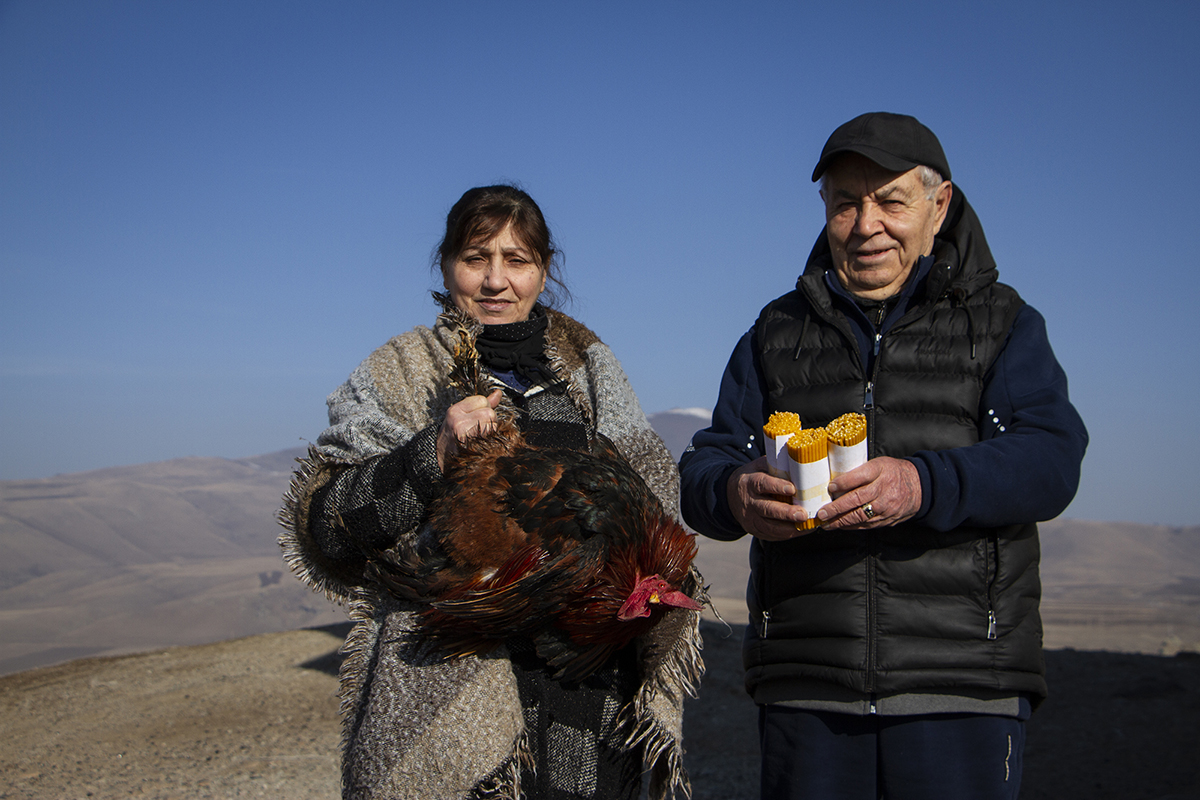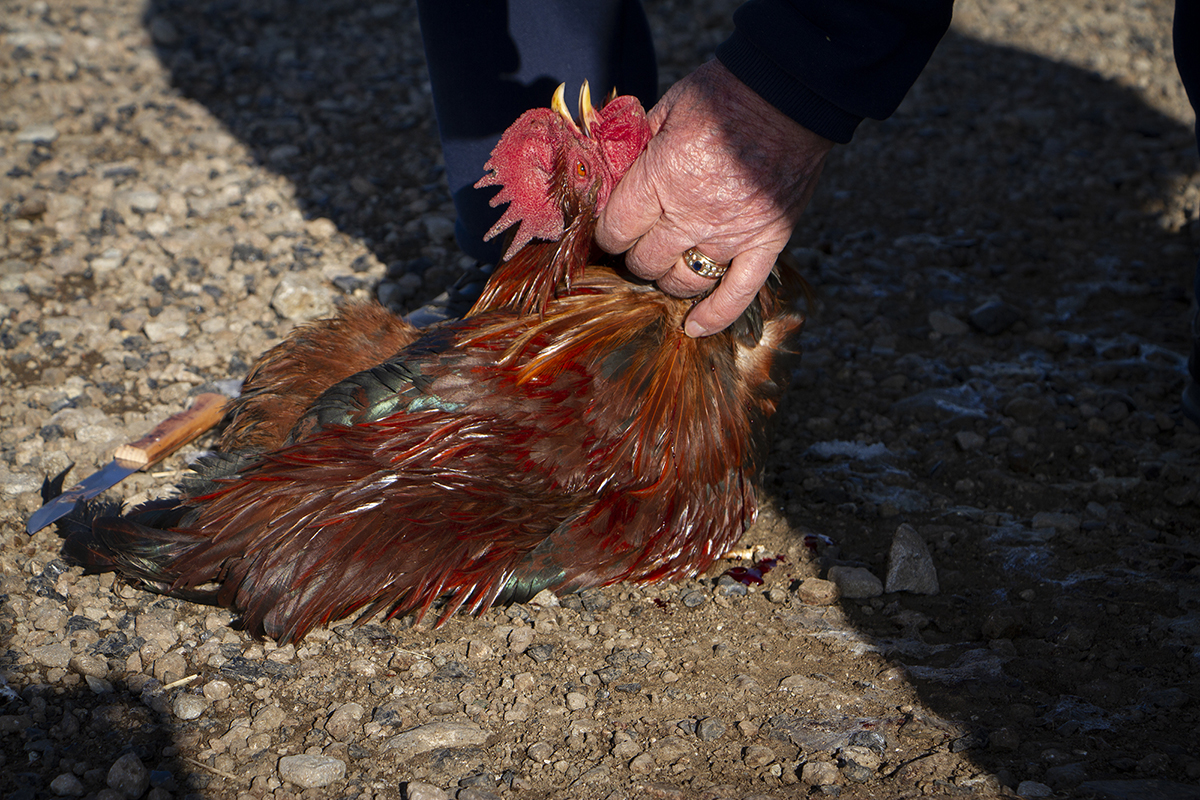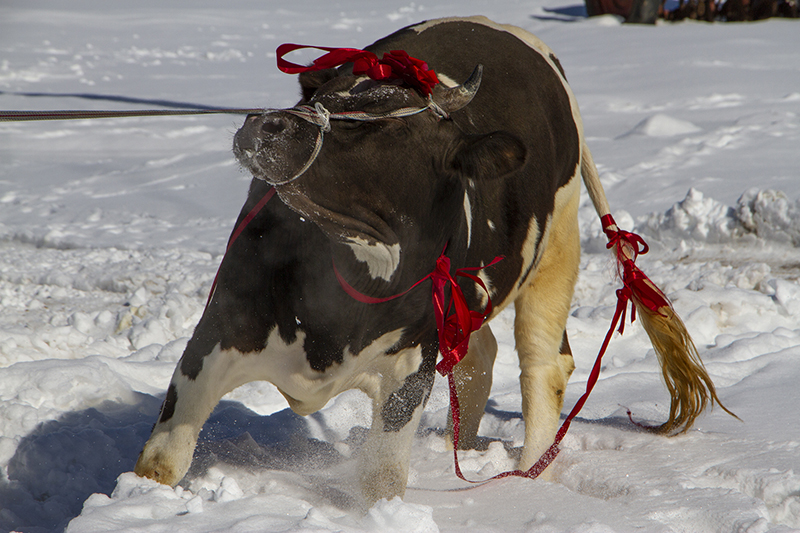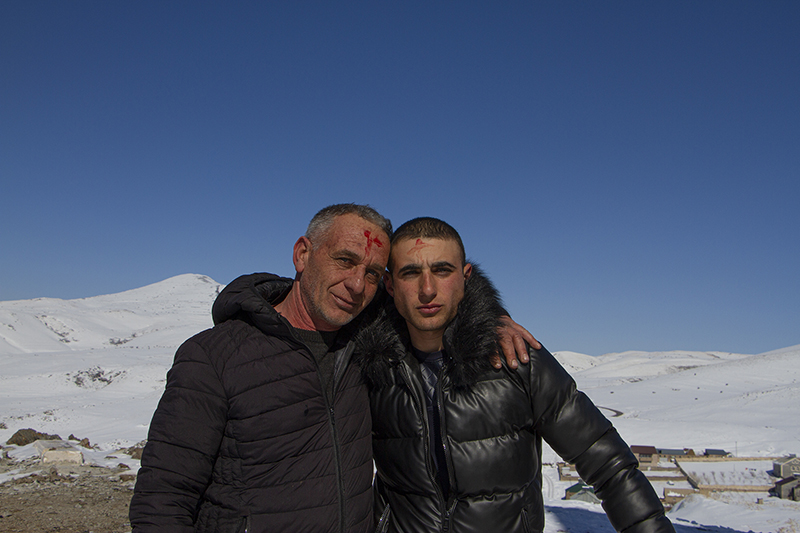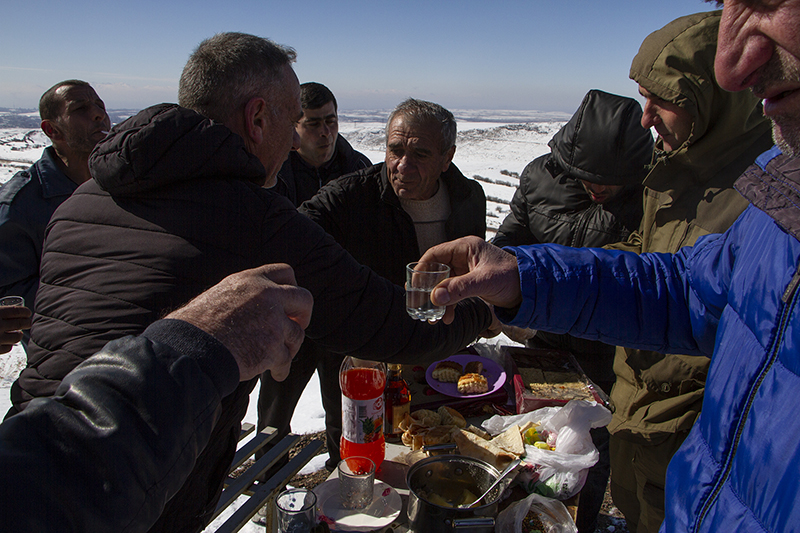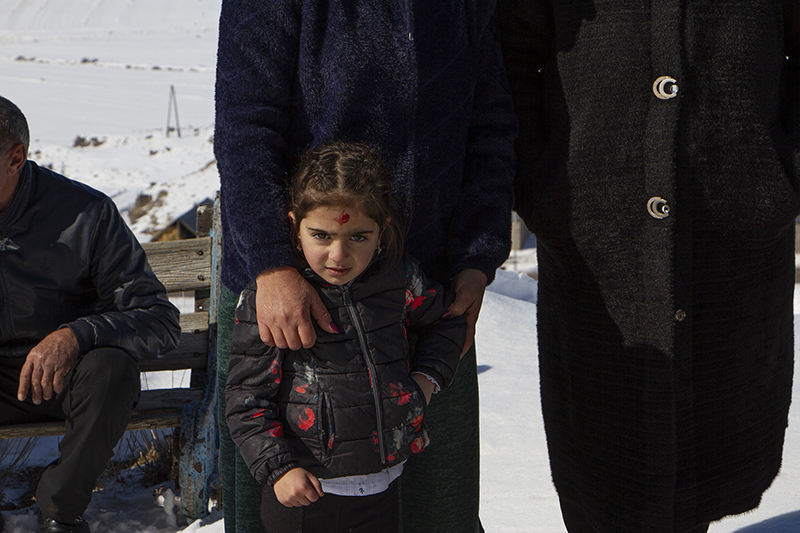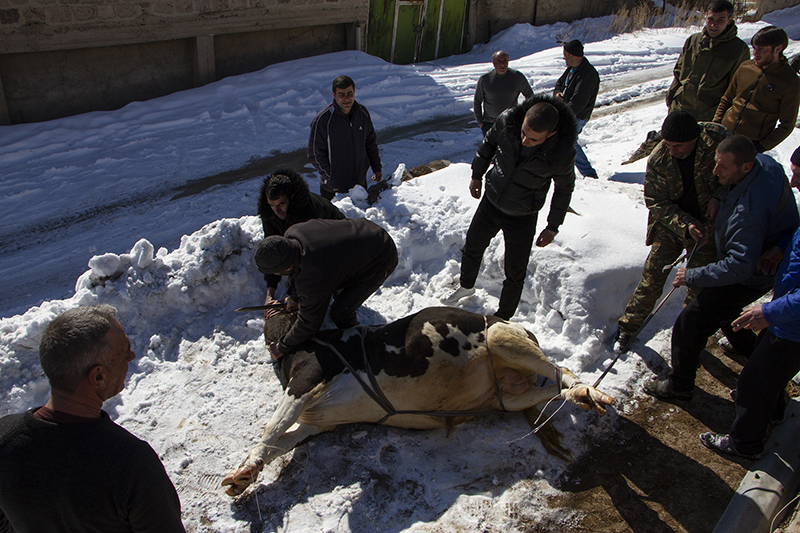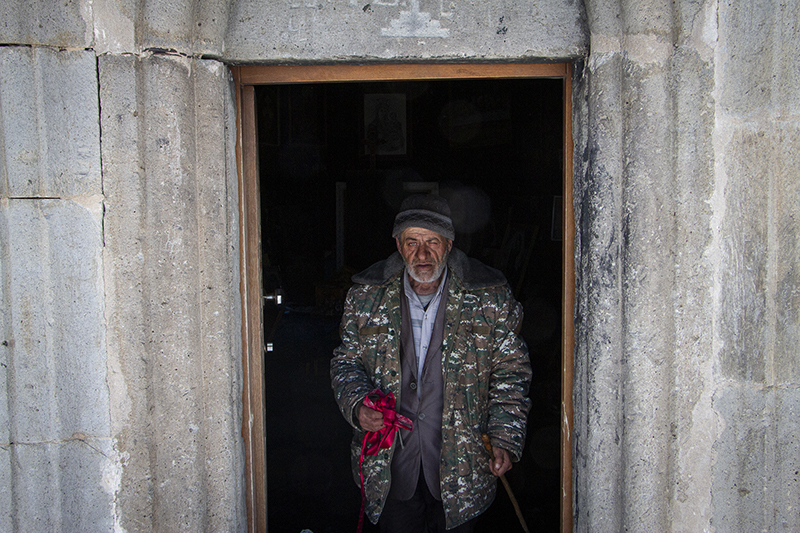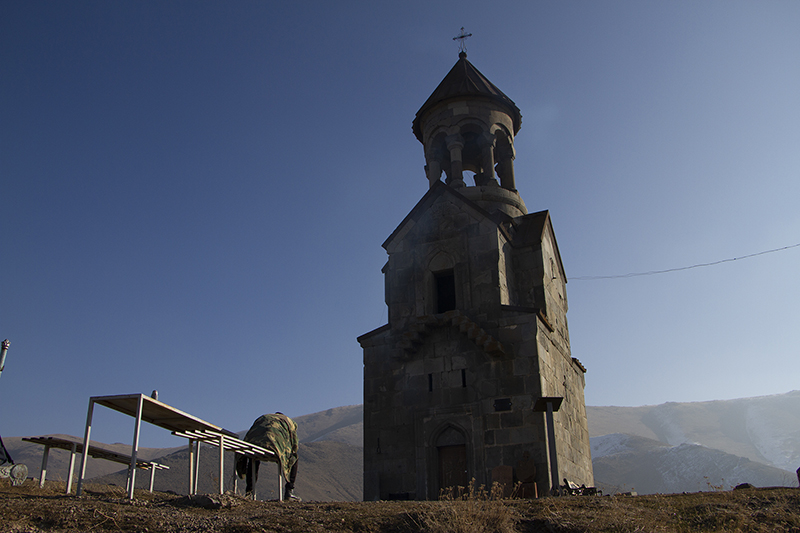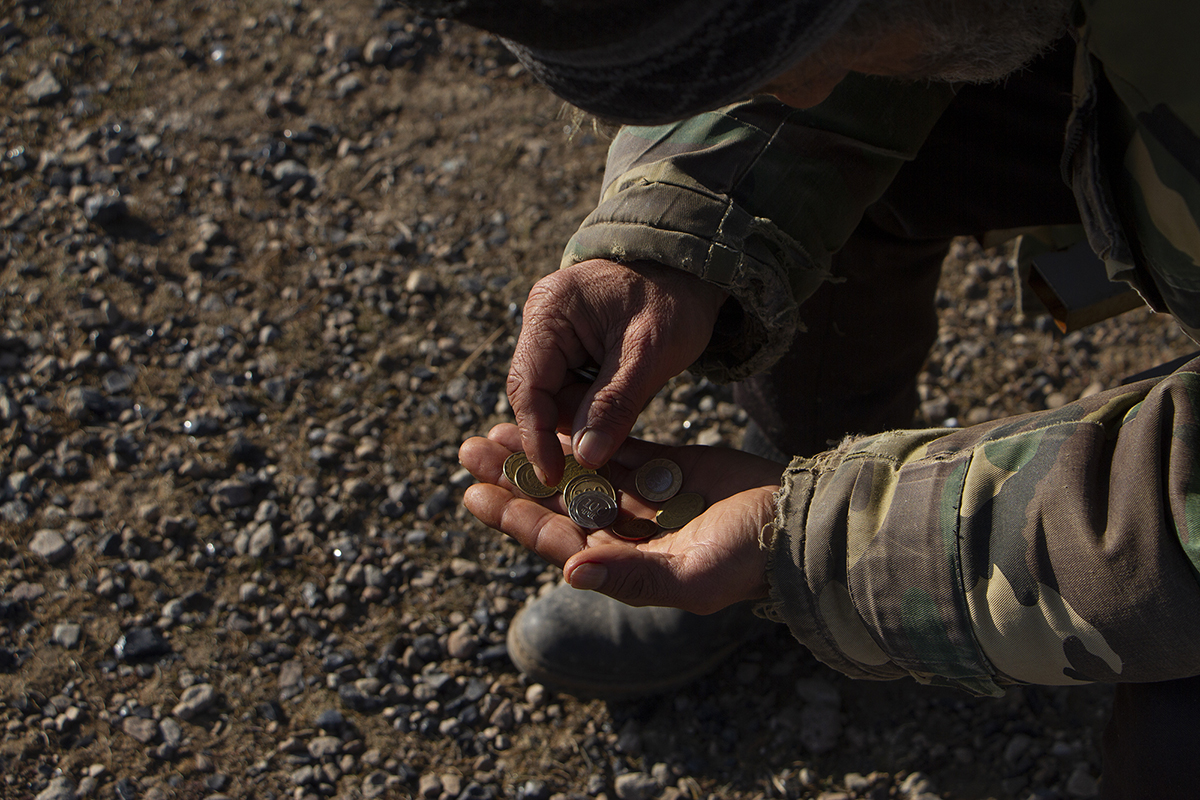“It is an old tradition. It has always been. We often do it. There is always an occasion for it – birthday, baptism, wedding, maybe someone returning from the army, being cured from illness, saved from misfortune, whatever.
Sometimes people ask their saints for help and promise to slaughter an animal as thanksgiving. Basically, they slaughter a rooster, a lamb or a bull, depending on their financial capacity. There is no set price for an animal. Every person pays what they can afford. You cannot bargain. For 20kg lamb, people will pay 50, 60, or 70 thousand drams, as they wish.
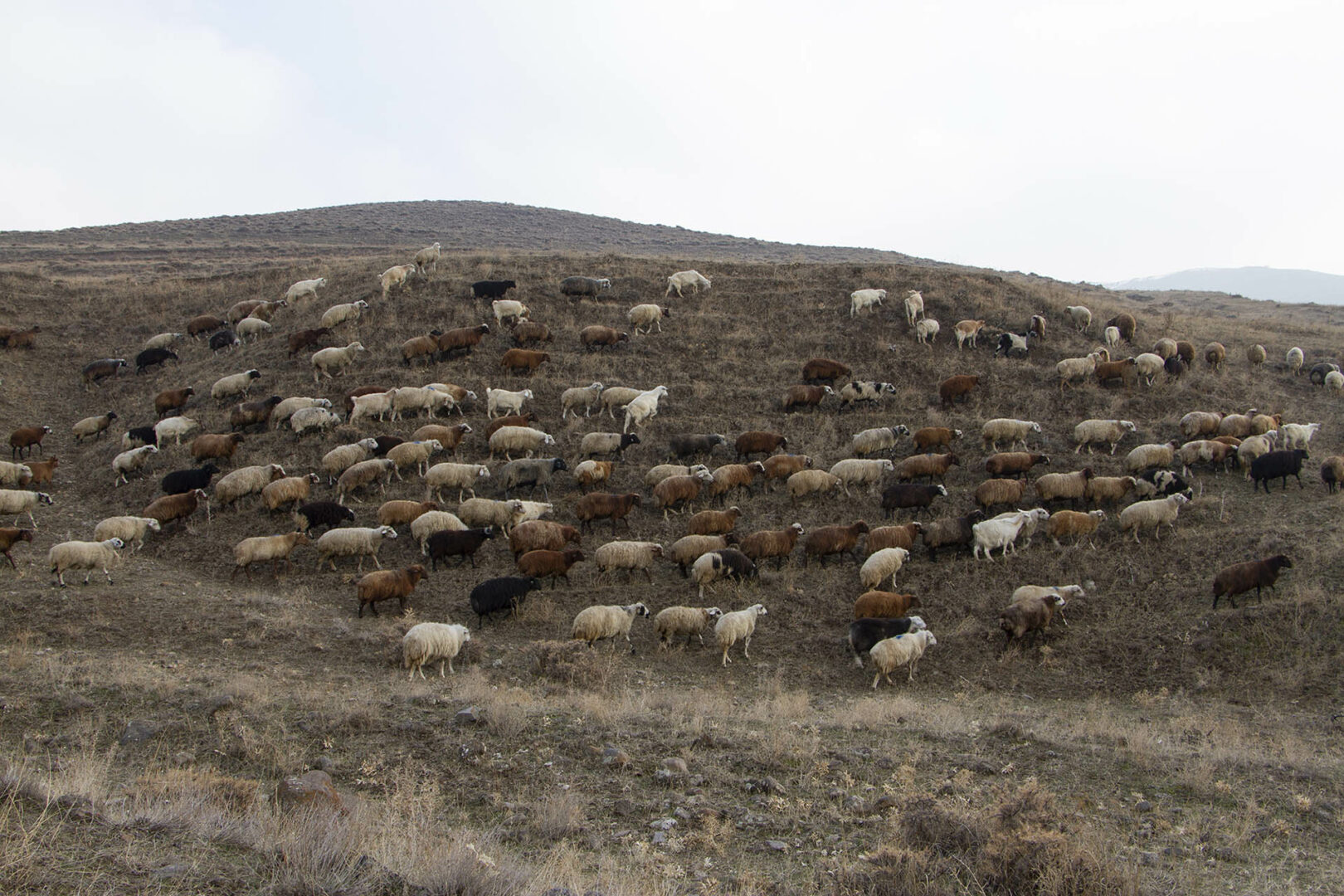
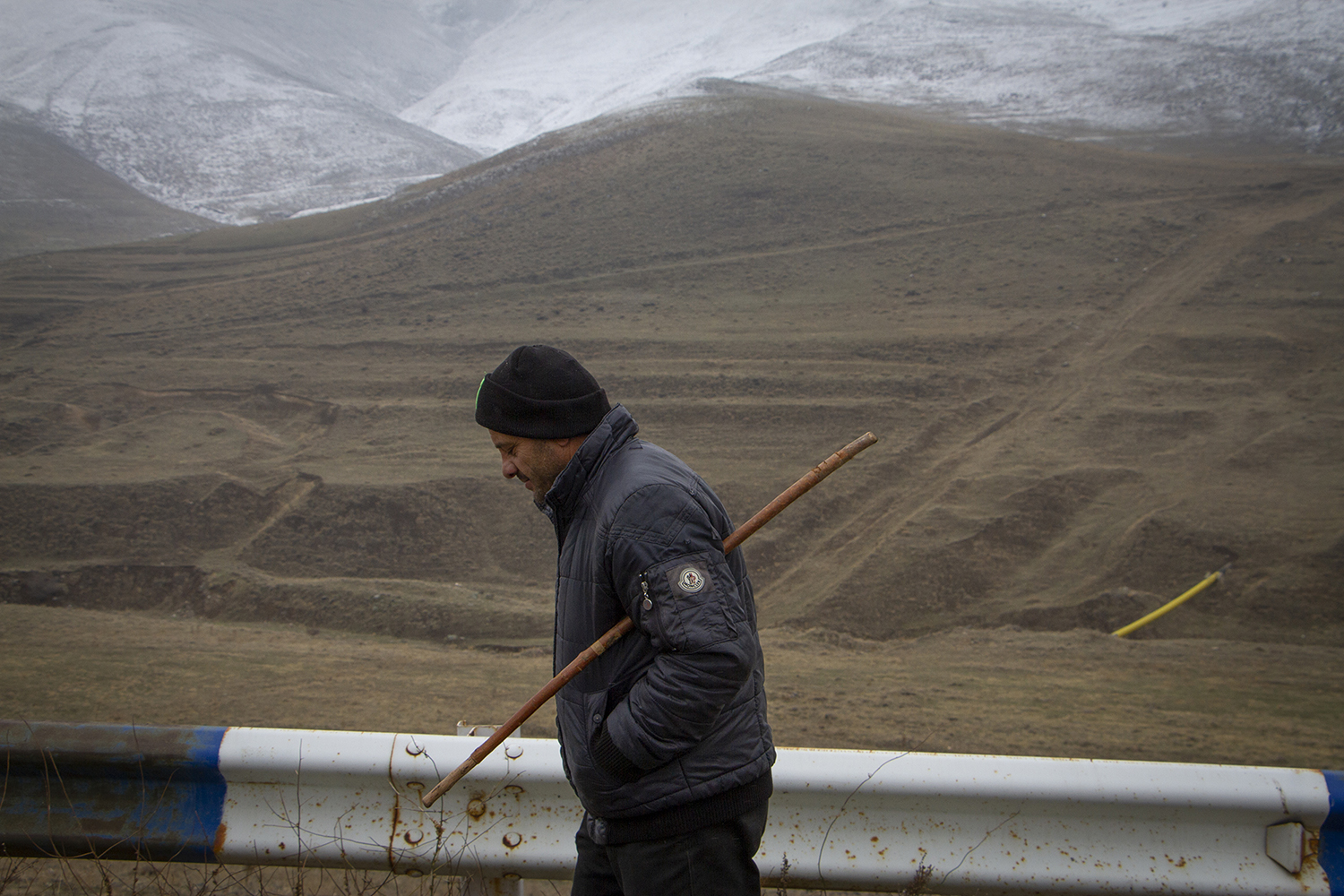
They bring the animal and walk it around the church 3 or 7 times, everyone does the way they know it. They bring blessed salt, which has been blessed already. If not, they walk around the church with it and make it sacred this way. It may happen so that they bring salt and put it either inside the church, under Christ’s image or they take it and make the animal eat it. The animal should eat that salt to make it acceptable for God. When they cut the animal’s ear, they make cross on its forehead with its blood. There is no age limit, children and adults can participate. But there are grown-ups who are unable to watch the slaughter. For instance, he is 62, but he has never killed a hen.”
“No, I can’t slaughter an animal, my hands are shaking. Once I was standing at the city market when two guys brought roosters and said to me, “Hey mate, you are a country guy, slaughter these roosters for us, will you?” I told them, “I can’t. You are like me, let’s do the other way you slaughter the roosters and I’ll pay you.” They answered they couldn’t do it either.
Then my wife who was with me all of a sudden told to bring her a knife. She slaughtered the roosters and said, “Here, take it and go.”
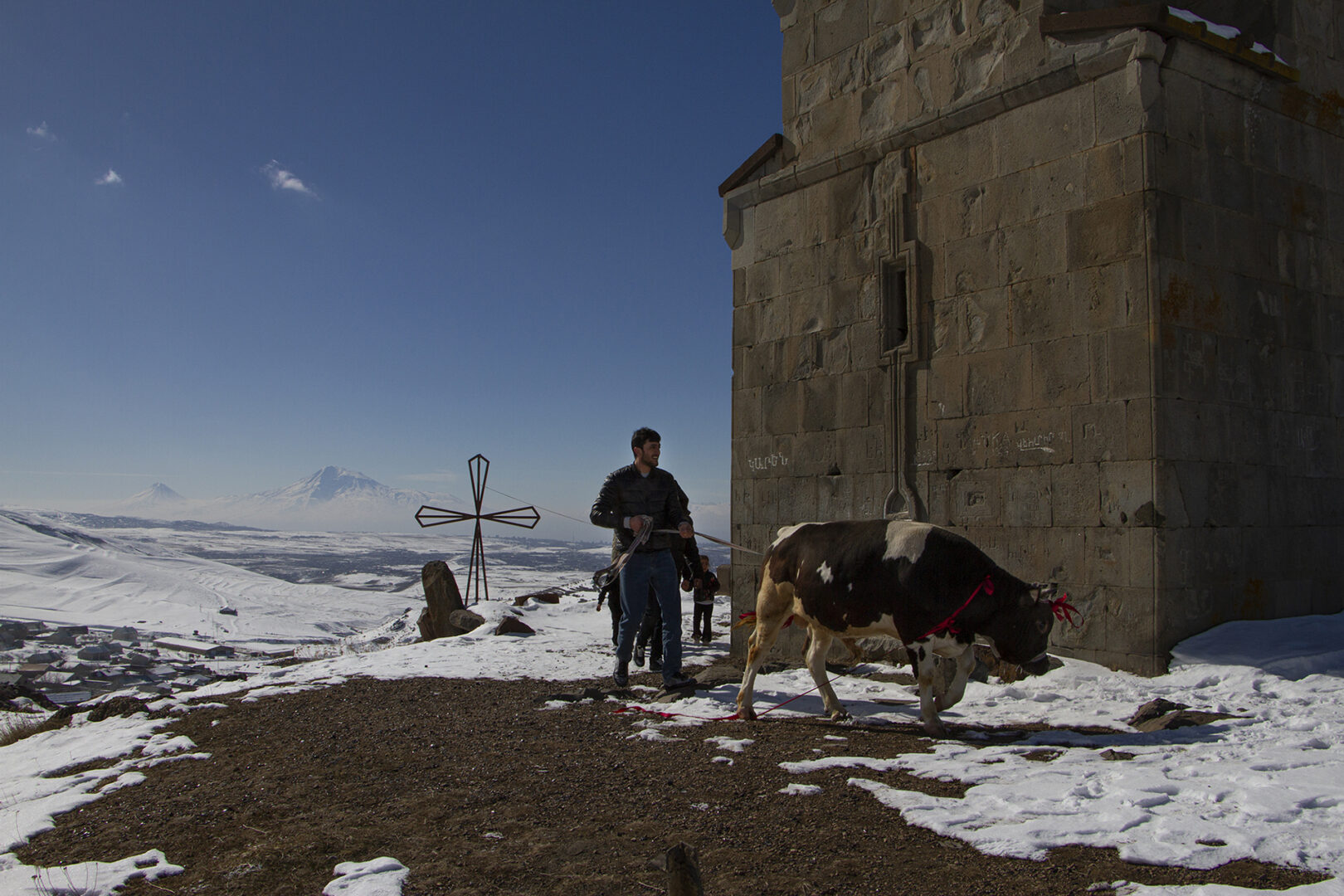
“My son has learned to slaughter chickens from my mother-in-law. My father was an accountant and his only tool was his pen.
My brother was slaughtering animals in our house before he got married. Every time someone in our village had to do matagh, they turned to my brother. I didn’t even touch an animal. But when he moved from us, I had to handle it myself. The very first time when I tried to slaughter a lamb, I spoiled the meat. Then gradually, I learned how to do it. It is a craft too, and it requires a skill, not everyone can do it.
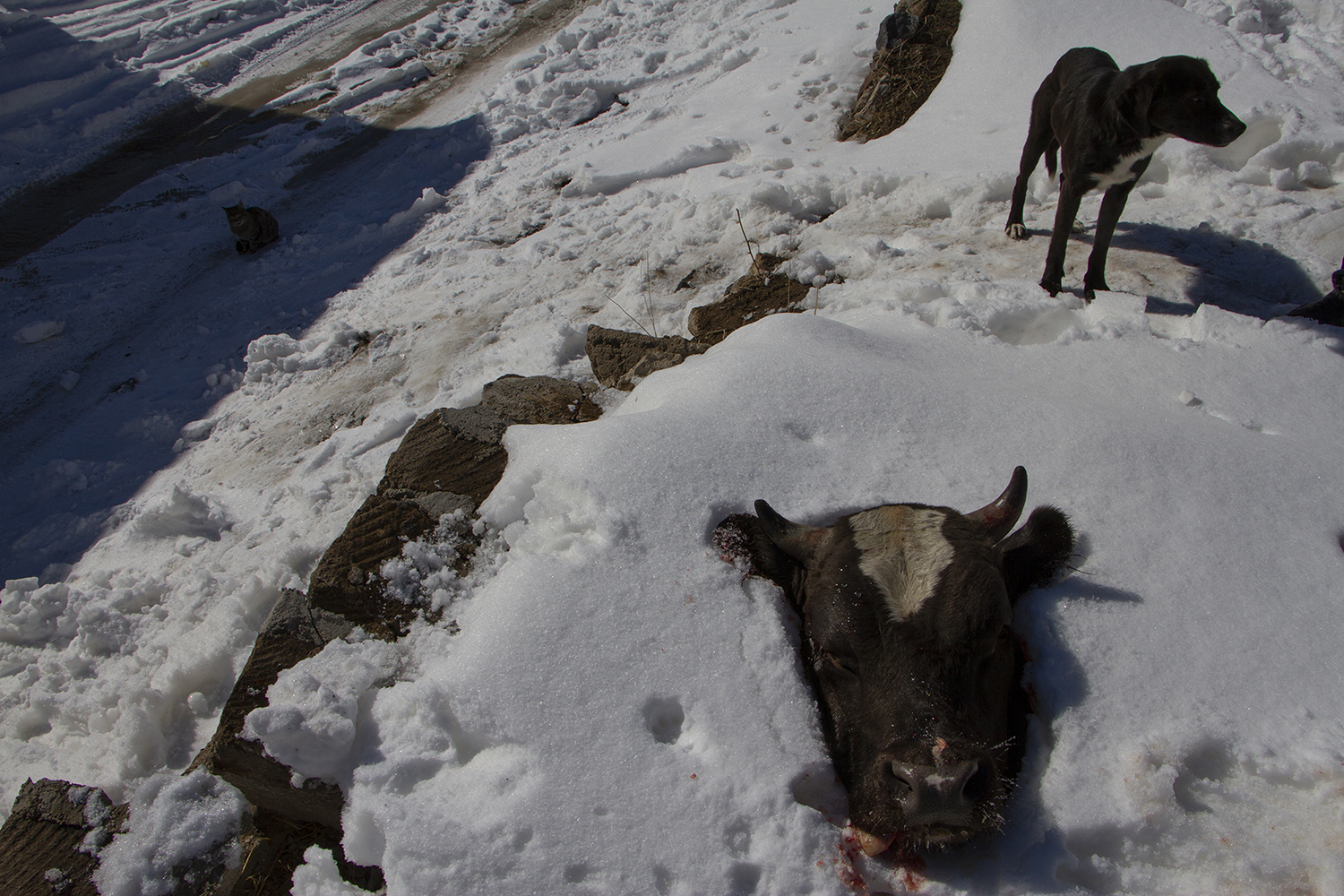
When in 2008 my son returned from the army, we slaughtered a bull that weighed approximately 250kg. There was no room in the hall of our school, the entire village was there. In the past, it was fascinating how the whole village would gather from the sounds of the dhol and zurna. People sifted flour and baked bread and received gifts for that. The children got chocolates. The celebration lasted 7 days and 7 nights for almost 300 guests. One didn’t need an invitation. Whoever wanted to come, was welcome. But it has changed now. To attend the feast, you must be invited. Now everyone celebrates at a restaurant. The cost of a chair is 5000 drams, and it usually starts at 6:00pm and finishes at 12:00 am.
Of course, in the past, we did everything by ourselves, it was good, but it was a relentless routine. Our mothers, wives and daughters got very tired from it. So, on the one hand, it was difficult, on the other hand, it was captivating. Everything is easier now, you just need to go and enjoy. The traditions are changing. Why not if there is an option to live easy. Eventually, it is all the same.
My ass got cold because from the steel we are sitting on. Let’s sit there. If you’re lucky maybe today someone will bring at least a rooster to do matagh and you’ll take photos.”



